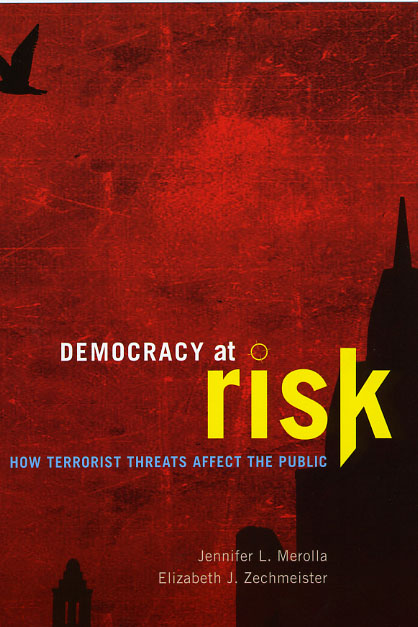A politics of fear

Yesterday on Good Morning America, former Homeland Security secretary Tom Ridge tried to quell the storm of reaction to his recent claim that former Defense Secretary Donald Rumsfeld and former Attorney General John Ashcroft pressured him to raise the terror alert level before the 2004 presidential election.
“Ashcroft strongly urged an increase in the threat level, and was supported by Rumsfeld,” Ridge writes in his new book, an excerpt of which was published yesterday at ABC.com. “There was absolutely no support for that position within our department. None. I wondered, ‘Is this about security or politics?’ Post-election analysis demonstrated a significant increase in the president’s approval rating in the days after the raising of the threat level.”
But how, exactly, do threats of terrorism affect the opinions of citizens? Speculation abounds, but until now no one had marshaled hard evidence to explain the complexities of this relationship. Drawing on data from surveys and original experiments they conducted in the United States and Mexico, Jennifer Merolla and Elizabeth Zechmeister demonstrate how our strategies for coping with terrorist threats significantly influence our attitudes toward fellow citizens, political leaders, and foreign nations.
In their forthcoming Democracy at Risk, the authors reveal, for example, that some people try to restore a sense of order and control through increased wariness of others—especially of those who exist outside the societal mainstream. Additionally, voters under threat tend to prize “strong leadership” more highly than partisan affiliation, making some politicians seem more charismatic than they otherwise would. The authors show that a wary public will sometimes continue to empower such leaders after they have been elected, giving them greater authority even at the expense of institutional checks and balances. Having demonstrated that a climate of terrorist threat also increases support for restrictive laws at home and engagement against terrorists abroad, Merolla and Zechmeister conclude that our responses to such threats can put democracy at risk.